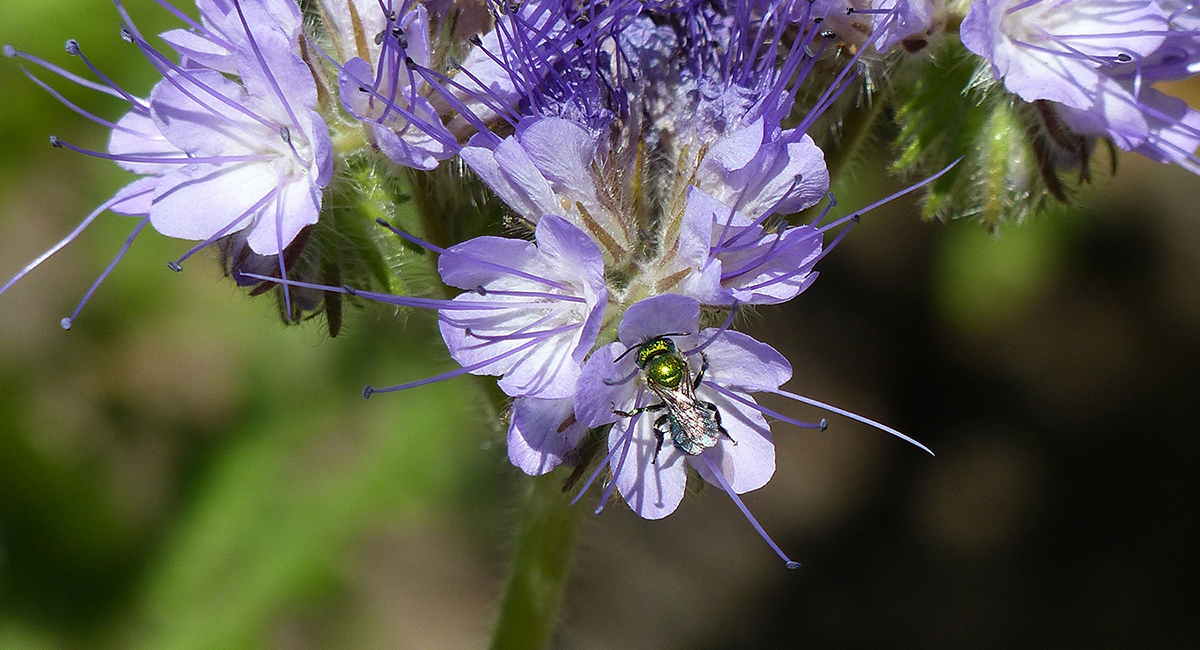Invertebrate pollinators in the managed conifer forests of the PNW
Researchers: Jim Rivers, Matt Betts, Rachel Zitomer
Study Objective: Evaluating the potential suitability of regenerating conifer forests as habitat for bees
Summary: Little is known about the effects of intensive forest management on pollinator habitat. This study will help fill that research gap, with a focus on invertebrate pollinators in the managed conifer forests of the Pacific Northwest.
Publications:
- Rivers, J. W., and Betts, M. G. 2021. Postharvest bee diversity is high but declines rapidly with stand age in regenerating Douglas-fir forest. Forest Science 67: 275-285. https://doi.org/10.1093/forsci/fxab002
Related Publications & Other Resources:
- Bees and clearcuts: OSU study tracks the interaction, Jefferson Public Radio
- Zitomer, R.A., et al. 2023. Bee diversity decreases rapidly with time since harvest in intensively managed conifer forests. Ecological Applications. e2855 (see also: OSU Press Release)
- Preliminary results: Pollinator Project Summary
- Pollinators in the Forest - blog post about Ph.D. student Rachel Zitomer's research on native bee health (November, 2022)
- Rivers, J.W., et al. 2018. A Review of Research Needs for Pollinators in Managed Conifer Forests. J. For. 116(6):563–572. doi: 10.1093/jofore/fvy052
- Rivers, J.W., et al. 2018. Wild bee diversity is enhanced by experimental removal of timber harvest residue within intensively managed conifer forest. Global Change Biology Bioenergy 10(10):766-781. DOI: 10.1111/gcbb.12531
- Providing Habitat for Native Pollinators. OSU Extension Service EC1649
